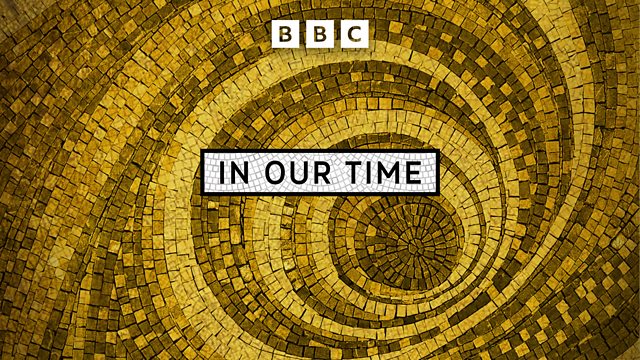Death in Venice
Melvyn Bragg and guests discuss Mann's infamous novella of 1912, exploring the link between creativity and self-destruction.
Death in Venice is Thomas Mann’s most famous – and infamous - novella.
Published in 1912, it’s about the fall of the repressed writer Gustav von Aschenbach, when his supposedly objective appreciation of a young boy’s beauty becomes sexual obsession.
It explores the link between creativity and self-destruction, and by the end Aschenbach’s humiliation is complete, dying on a deckchair in the act of ogling. Aschenbach's stalking of the boy and dreaming of pederasty can appal modern readers, even more than Mann expected.
With
Karolina Watroba, Post-Doctoral Research Fellow in Modern Languages at All Souls College, University of Oxford
Erica Wickerson, a Former Research Fellow at St Johns College, University of Cambridge
Sean Williams, Senior Lecturer in German and European Cultural History at the University of Sheffield
Sean Williams' series of Radio 3's The Essay, Death in Trieste, can be found here: /programmes/m001lzd4
Last on
Featured
-
.
Links and further reading
CONTRIBUTORS
at the University of Oxford
at the University of Cambridge
at the University of Sheffield
��
READING LIST
��
Alan Bance, ‘“Der Tod in Venedig” and the Triadic Structure’ (Forum for Modern Language Studies 8, 1972)
��
Jeffrey B. Berlin (ed.), Approaches to Teaching Mann’s Death in Venice and Other Short Fiction (Modern Language Association, 1992)
��
Elizabeth Boa, ‘Global Intimations: Cultural Geography in Buddenbrooks, Tonio Kröger, and Der Tod in Venedig’ (Oxford German Studies 35, 2006)
��
Edward S. Brinkley, 'Fear of Form: Thomas Mann's Der Tod in Venedig' (Monatshefte 91:1, 1999)
��
Inta Ezergailis (ed.), Critical Essays on Thomas Mann (G. K. Hall, 1988), especially 'The Second Author of Der Tod in Venedig' by Dorrit Cohn
��
André von Gronicka, ‘“Myth plus Psychology”: a style analysis of Death in Venice’ (Germanic Review 31, 1956)
��
Anthony Heilbut, Thomas Mann: Eros and Literature (Papermac, 1997)
��
David Jackson (ed.), Taboos in German Literature (Berghahn, 1996), especially ‘The Frustrated Poet: Homosexuality and Taboo in Der Tod in Venedig’ by T. J. Reed
��
Todd Kontje, The Cambridge Introduction to Thomas Mann (Cambridge University Press, 2010)
��
Thomas Mann (trans. David Luke), Death in Venice and Other Stories (Vintage Publishing, 2001)
��
Thomas Mann (ed. T. J. Reed), Der Tod in Venedig (Bloomsbury, 1998)
��
T. J. Reed, Death in Venice: Making and Unmaking a Master (Twayne, 1994)
��
T. J. Reed, Thomas Mann: The Uses of Tradition (Oxford University Press, 1996)
��
Ritchie Robertson (ed.), The Cambridge Companion to Thomas Mann (Cambridge University Press, 2001), especially 'Classicism and Its Pitfalls: Death in Venice' by Ritchie Robertson
��
Heidi M. Rockwood and Robert J. R. Rockwood, ‘The Psychological Reality of Myth in Der Tod in Venedig’ (Germanic Review 59, 1984)
��
Richard Sheppard, ‘Tonio Kröger and Der Tod in Venedig: From Bourgeois Realism to Visionary Modernism’ (Oxford German Studies 18-19, 1989-90)
��
Ellis Shookman, Thomas Mann's Death in Venice: A Novella and Its Critics (Camden House, 2003)
��
RELATED LINKS
-����-����ѿ��ý Radio 3 The Essay – ‘From the Depths’ by Sean Williams, May 25th 2023
-��
��
Broadcast
- Thu 15 Jun 2023 09:00��ѿ��ý Radio 4
Featured in...
![]()
20th Century—In Our Time
Browse the 20th Century era within the In Our Time archive.
![]()
Culture—In Our Time
Popular culture, poetry, music and visual arts and the roles they play in our society.
In Our Time podcasts
Download programmes from the huge In Our Time archive.
The In Our Time Listeners' Top 10
If you’re new to In Our Time, this is a good place to start.
Arts and Ideas podcast
Download the best of Radio 3's Free Thinking programme.
Podcast
-
![]()
In Our Time
Melvyn Bragg and guests discuss the ideas, people and events that have shaped our world.



